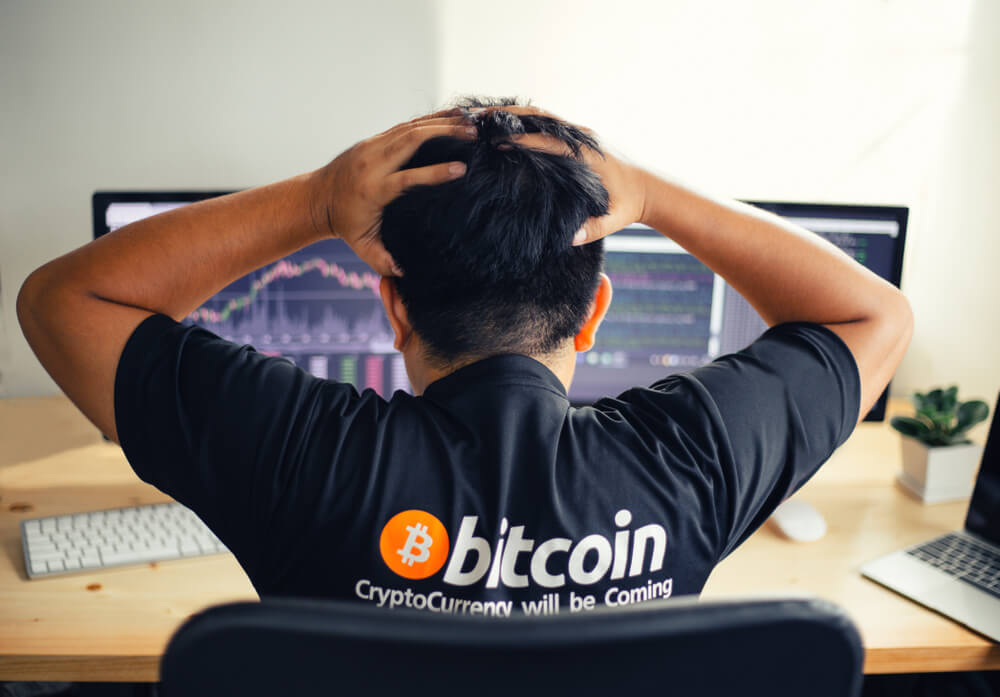
Latest in the D’Aloia Case
Learn more

Bitcoin is a large topic of discussion in many different settings, but the conversation is particularly relevant for Muslims who want to make sure their investments follow their religious beliefs.
Islamic finance follows strict rules from Sharia law, which means avoiding uncertain deals and only investing in things considered ethical and fair.
So, the big question is: Can Muslims invest actually in Bitcoin, a currency known for its ups downs and for being outside traditional banking systems?
In this blog, we will examine whether Bitcoin fits into Islamic finance by checking what religious teachings say, looking at expert financial advice, and listening to what Islamic scholars think. We want to determine if Bitcoin matches the ethical and moral standards set by Islamic finance, diving into how faith plays a role in how we use and think about money today.
Whether Bitcoin is Halal (permissible) or Haram (forbidden) is complex. This is because Bitcoin’s characteristics—such as its decentralisation, its association with speculative trading, and its high volatility—raise concerns about whether it aligns with the principles of Islamic finance.
To figure out if Bitcoin is Halal or Haram, we should consider these few factors:
Let’s delve in a little deeper to each of these concerns.
One big concern about Bitcoin is whether buying it is more like guessing and taking chances, similar to gambling. This is something that Islam does not allow. Although it isn’t the same as gambling, it still means risking money on uncertain outcomes, hoping to win more.
Buying Bitcoin feels too similar to this because its price can go up and down very quickly. The key question is whether investing in Bitcoin is just making a bet on its future value or a legitimate way to save and grow money in a way that’s allowed.
As mentioned above, investing in Bitcoin does come with a lot of ups and downs. In Islamic finance, very uncertain or risky deals aren’t recommended because they can lead to unfair situations or losses that could have been avoided. When the value of Bitcoin changes a lot in a short time, it’s hard to predict what will happen next.
This level of uncertainty is something to consider carefully, especially for those who want to ensure their investments align with the principles of fairness and caution advised in Islam.
Islamic principles encourage investments that contribute to productive work, like businesses that create goods or services. The concern with Bitcoin is whether holding onto it as an investment helps the economy grow or if it’s more like keeping money out of use.
Since Bitcoin isn’t always used to buy things or support businesses, it can be tricky to see how it fits into the idea of positively contributing to the economy. This aspect is important for those looking to invest in ways that are profitable, beneficial to society, and in line with Islamic values.
Two main reasons why some people consider cryptocurrency haram are:
The price of cryptocurrency is determined by supply and demand, making it very volatile. One Bitcoin was worth almost £50,000 in November 2021, but its value had plummeted to less than £15,500 by June 2022. Investing in crypto is similar to gambling, which is prohibited in Islam.
As you might be able to tell by the above, not everyone agrees on whether cryptocurrencies like Bitcoin are allowed (halal) or not allowed (haram) in Islam. Some experts, like those at Islamic Finance Guru, think cryptocurrencies are generally okay according to Sharia law.
They say this because, unlike loans, cryptocurrencies don’t earn interest, which Islam forbids. But they also warn that because cryptocurrencies can be very risky and aren’t well-regulated, they might be considered haram.
So, whether investing in cryptocurrencies is halal or haram depends on how you use them. If you use them to buy things that are allowed, it’s considered permissible. However, if you’re buying them just to invest and make money, it might be different.
Muslims can save and invest in a halal way by following Islamic finance principles.
A research paper notes that crypto has “limits to being called ‘money’” and is more often used as an investment than for transactions.
Many banks are now referring to crypto as crypto assets to differentiate it from traditional money. In Islam, money should be based on physical assets and able to pay for everyday goods and services.
While not all Muslims share this view, it’s important to consider whether you view crypto as a true currency or a digital asset.
Cryptocurrency remains unregulated in many countries, which poses a challenge for Muslims when it comes to determining whether or not cryptocurrency is halal. However, some people are open to the idea of crypto becoming accepted if it’s better regulated by governments and financial bodies.
Regulations could help reduce the uncertainty and risk surrounding crypto, and some countries, including the US, are starting to introduce them. But so far, no Muslim-majority countries allow crypto for legal transactions.
Islamic scholars generally consider cryptocurrency to be haram, but some leave room for further innovation and regulation to potentially make it permissible.
Indonesia, the largest Muslim-majority country, has banned cryptocurrency trading due to its “uncertainty and harm.” However, cryptocurrencies that meet governmental rules will be allowed.
On the other hand, Ray Youssef believes that Bitcoin is halal because it does not allow for accruing interest and lacks an interest scheme within it.
| SCHOLAR | OPINION |
| Dr. Salah Al Sawy | Not Haram but Makruh. Be very careful. |
| Mufti Shawqi Allam | (Fatwa) Haram. |
| Sheikh Assim Al Hakeem | (Fatwa) Haram. |
| Shaykh Haitham al-Haddad | (Fatwa) Haram and all transactions with Bitcoin are Haram. |
| Mufti Faraz Adam | Not Haram. |
| Dr. Ziyaad Mahomed | Not Haram yet he is seeking more structured guidelines for crypto as a whole. |
| Mufti Muhammad Abu Bakar | Halal but use with caution. |
| Dr. Mohamed Ali El Gari | Halal and classifies Bitcoin as a currency. |
| Dr. Mohd Daud Bakar | Halal and classifies Bitcoin as an asset. |
| Sheikh Mustafa Umar | Can be Halal and Makruh. |
Join our community for more support, guidance, and insights into crypto tax.
Here, you’ll find a welcoming space to discuss, learn, and explore the nuances of cryptocurrencies, including which investments might be halal or haram. Our experts and fellow members are ready to share their knowledge, ensuring you can invest confidently and clearly. Don’t journey through the crypto world in uncertainty—join our crypto tax advice community today and empower yourself with the knowledge you need to invest wisely and under your beliefs.

Andy has a breadth of experience as a Barrister and as a Chartered Tax Advisor, which means he comes into the crypto space with expertise he can't wait to share.
Learn more"*" indicates required fields

August 20th, 2024

June 17th, 2024

April 24th, 2024

March 20th, 2024

March 20th, 2024

March 20th, 2024

March 11th, 2024

February 12th, 2024

February 12th, 2024

January 11th, 2024